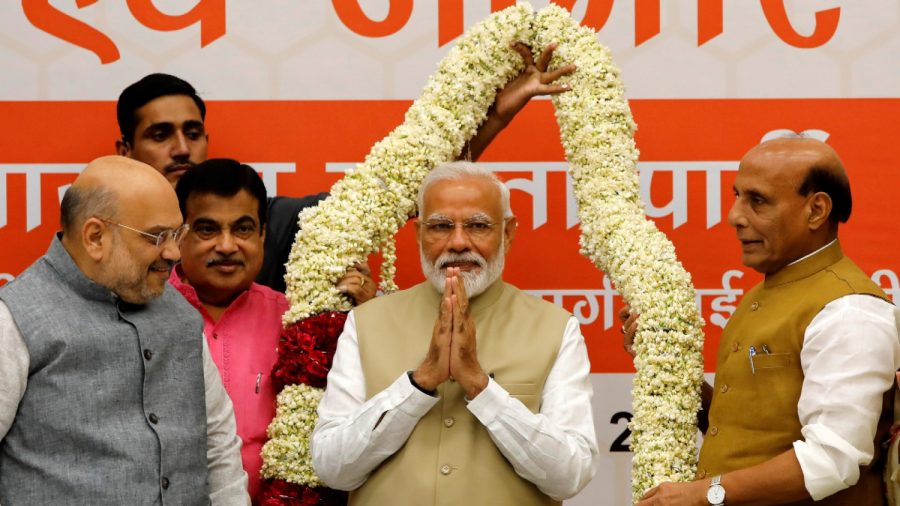It was the largest democratic election in the history of the world: India’s prime minister is set to play a leading role in the rule-of-order for his country, and a free and open Indo-Pacific region. He will begin his second 5-year term on Thursday 30 May.
More than 600 million voters turned out to cast their ballot at this year’s general election in India. Standing Prime Minister Narendra Modi’s party won the majority of seats in the lower house of parliament, and he was successfully re-elected.
“You know, we have not seen a single national level politician as popular as popular as Prime Minister Modi, probably since Indira Gandhi,” said Milan Vaishnav, Director of the South Asia Program, Carnegie Endowment for International Peace. “[People] who vote for the BJP [Bharatiya Janata Party] are really driven … by his decisiveness, by his ability to project himself as a sort of strong leader.”
Although the Indian economy faces many challenges, including high fiscal deficits and unemployment rates, experts believe Modi’s firm foreign policy and attention to national security has won him considerable support.
The day after Modi’s election victory, global investors bought a net worth of $216.3 million in Indian bonds. The benchmark 10-year yield dropped as much as seven basis points to reach 7.16 percent yesterday, the lowest since April last year.
“He stands for something which is a kind of muscular India, so an India that will retain or regain its rightful place as not just a balancing power, but a leading power across the world,” Vaishnav said.
According to the White House, President Trump called Prime Minister Modi on Friday to congratulate him. They pledged to continue strengthening the US-India strategic partnership.
They will meet at the G-20 Summit in Osaka next month, where the U.S., India, and Japan will hold a trilateral meeting to pursue their shared vision for a free and open Indo-Pacific.
“Why I think the relationship overall will remain strong is because of the strategic side that the defense and security relationship is quite important, and that’s to do with how India and the US share a perception about the maintenance of the rules-based order in the Indo-Pacific,” said Tanvi Madan, Director of the India Project, Brookings Institution.
During his first term of office, Modi had two major military confrontations with Pakistan and one standoff with China at the border.
Tanvi Madan, Director of the India Project, Brookings Institution said that while Modi hopes to attract more Chinese investment, he is concerned about China’s Belt and Road Initiative and the tensions at the border.
“Unless the two countries decide to settle the boundary dispute that they have, this will constantly be a problem, and will ensure that there will be a lack of trust, to a certain extent, on both sides,” Madan said.


